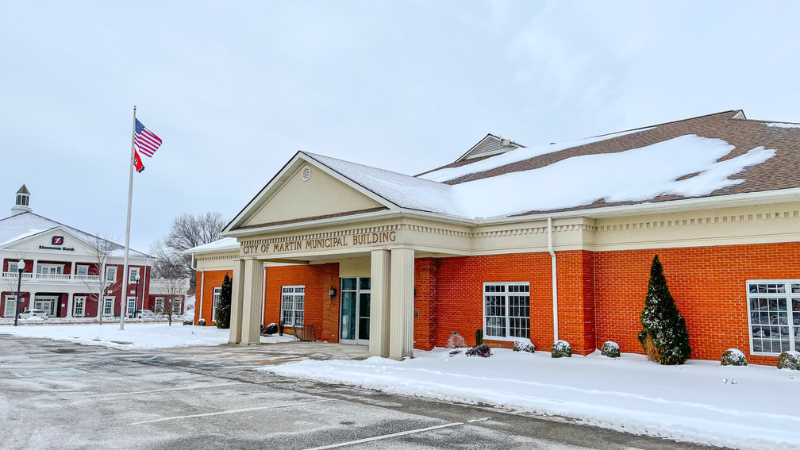Winter Weather Risks Property Loss Prevention
- Author | Carly Salah
- 12/7/2023 7:45 am

In our previous newsletter, it was shared that we are currently in a hard property insurance market. This market is characterized by a period of increased scrutiny and stricter underwriting standards by insurers and reinsurers. During these times, obtaining insurance coverage becomes more challenging and property premiums tend to rise significantly. According to Business Insurance magazine, property rates saw a double-digit average increase earlier this year and North American property insurance buyers will see continued property insurance rate hikes in 2024.
To protect public property from loss and to mitigate the severity of property losses that occur, public entities are encouraged to implement property conservation best practices. Property conservation is an organized and managed effort directed toward loss prevention and pre-planned emergency action.
This is very important because public entities provide essential public services that the private sector often does not provide. They utilize their property assets to assist them in providing these essential services, and a major property loss could jeopardize a public entity’s ability to serve the public. Therefore, implementing property conservation best practices should be a priority for public entities.
As we approach the holiday season, it's crucial for public entities to revisit and reinforce their strategies for reducing risks related to weather-induced property losses. Reflecting on the severe winter storm that hit Tennessee in December 2022, causing substantial damage and power outages, it's evident that proactive loss prevention best practices are essential for safeguarding our public properties and the communities we serve.
Loss prevention best practices include:
- Comprehensive Winterization Plans - Ensure a thorough winterization plan is in place for all facilities that focuses on vulnerable areas susceptible to freezing temperatures. This includes insulating pipes, sealing windows and doors, and inspecting heating systems to prevent failures during prolonged closures.
- Regular Property Inspections - Implement a routine inspection schedule, especially during periods of office closures. Promptly identify and address any potential issues such as roof leaks, damaged insulation or malfunctioning heating systems to prevent them from escalating into costly problems. In addition, office usage of extension cords and space heaters often increases during the winter months. Public entities are encouraged to inspect facilities to ensure that all applicable safety standards, policies, laws, rules, regulations and recommended practices are being followed.
- Emergency Response Preparedness - Establish clear protocols for responding to weather-related emergencies, even during holidays. Designate responsible personnel, communicate emergency procedures effectively, and ensure that everyone is aware of evacuation routes and emergency contact information.
- Monitoring Weather Forecasts - Stay vigilant by monitoring weather forecasts regularly. This allows for early preparation, which helps enable organizations to activate contingency plans and mitigate potential damages before they occur.
- Collaborative Partnerships - In the spirit of collective risk reduction, encourage collaboration among your staff. Share best practices, resources and information about local weather patterns to collectively strengthen your entity’s resilience and ability to respond to weather-related challenges.
Considering the current economic landscape, with increased inflation and the hard property insurance market, it's imperative that we collectively work toward reducing our property risk exposures and keeping property claims as low as possible.
By adopting these best practices and fostering a culture of preparedness and collaboration, we not only protect our public assets, we also retain our ability to respond to the needs of our citizens and communities. Let's proactively address these challenges together to ensure a safer and more secure environment for all.
Wishing you a resilient and risk-aware holiday season!
WINTER WEATHER CHECKLIST – CLICK HERE
Categories
-
Annual Report
(5)
-
Audit Requests
(2)
-
Board of Directors
(19)
-
Claims
(26)
-
Cyber Extension
(4)
-
Cyber Security
(27)
-
Dividend
(7)
-
EHS Hero & HR Hero
(16)
-
Employment Practices Liability
(26)
-
Excellence In Risk Management Awards
(18)
-
Fireworks
(1)
-
First Responders
(9)
-
Grants
(23)
-
Law Enforcement
(16)
-
Local Government Risk Academy
(4)
-
Loss Control
(106)
-
Member Services
(11)
-
Message From the President
(20)
-
MTAS
(10)
-
Municipal Sewer System
(4)
-
Partnering for Success Webinar Series
(33)
-
PEP Staff
(32)
-
Qualified Immunity
(3)
-
Risk & Insurance Symposium
(42)
-
Safety Program
(56)
-
Scholarships
(20)
-
Social Media
(2)
-
Training
(78)
-
Underwriting
(32)
-
Workers' Compensation
(27)
- Annual Report (5)
- Audit Requests (2)
- Board of Directors (19)
- Claims (26)
- Cyber Extension (4)
- Cyber Security (27)
- Dividend (7)
- EHS Hero & HR Hero (16)
- Employment Practices Liability (26)
- Excellence In Risk Management Awards (18)
- Fireworks (1)
- First Responders (9)
- Grants (23)
- Law Enforcement (16)
- Local Government Risk Academy (4)
- Loss Control (106)
- Member Services (11)
- Message From the President (20)
- MTAS (10)
- Municipal Sewer System (4)
- Partnering for Success Webinar Series (33)
- PEP Staff (32)
- Qualified Immunity (3)
- Risk & Insurance Symposium (42)
- Safety Program (56)
- Scholarships (20)
- Social Media (2)
- Training (78)
- Underwriting (32)
- Workers' Compensation (27)